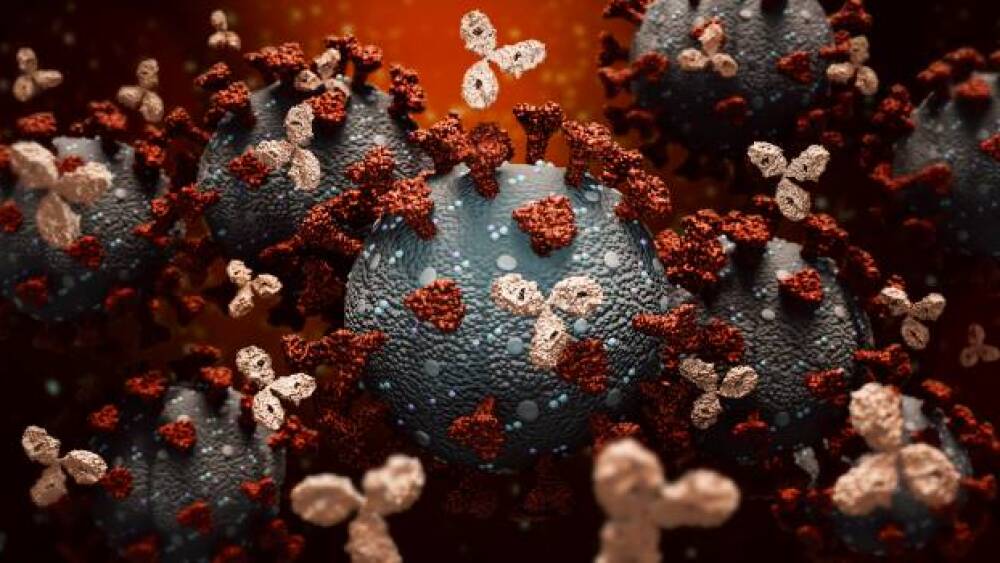Monoclonal antibodies have proven to be an important therapeutic option in the ongoing battle against COVID-19.
Monoclonal antibodies have proven to be an important therapeutic option in the ongoing battle against COVID-19. So far, three monoclonal antibody treatments have been authorized under emergency use by the U.S. Food and Drug Administration, with one more potential EUA likely to come soon.
The three monoclonal antibodies authorized so far include Regeneron’s REGEN-COV, Eli Lilly’s combination of bamlanivimab and etesevimab, and sotrovimab, which GlaxoSmithKline and Vir Biotechnology developed. AstraZeneca could soon see EUA for its monoclonal antibody treatment, AZD7442, which has a distinct advantage over the others. It can be administered as an injection instead of the infusion methods the others require and is also designed to be longer-acting within the body.
Monoclonal antibodies are designed to be similar to what a person’s immune system would naturally make in response to an infection. While the monoclonal antibodies developed by the pharmaceutical companies are mass-produced in a laboratory, they are still designed to recognize the spike protein on the SARS-CoV-2 virus and attack it. Monoclonal antibodies are designed to mimic what a well-functioning immune system does by using very potent antibodies to neutralize the virus.
BioSpace takes a quick look at each of the monoclonal antibodies.
AstraZeneca
AZD7442 is a long-acting antibody combination of tixagevimab and cilgavimab. Both originate from B-cells donated by patients who recovered from COVID-19. If authorized by the FDA, AZD7442 will be the first long-acting antibody cocktail against COVID-19.
Clinical Data: In August, AstraZeneca announced positive data from the Phase III PROVENT pre-exposure prophylaxis trial. In the study, the antibody combination demonstrated a statistically significant decrease in the incidence of symptomatic COVID-19. AZD7442 decreased the risk of developing COVID-19 by 77% compared to placebo. There were no cases of severe COVID-19 or COVID-19-related deaths in patients who received the AstraZeneca treatment. That was in comparison to three cases of severe COVID-19, with two deaths in the placebo cohort.
Supply Agreements: Although it has yet to be authorized for use, AstraZeneca is in talks with the U.S. government and other governments globally over supply agreements.
GSK/Vir
In May, the FDA granted EUA to sotrovimab, a monoclonal antibody developed by GlaxoSmithKline and Vir. It was authorized for use to treat mild-to-moderate COVID-19 in adults and children 12 years of age and older weighing at least 40 kilograms (88 pounds). It has also been authorized for use in Europe.
Clinical Data: The EUA was granted based on interim data from the Phase III COMET-ICE (COVID-19 Monoclonal antibody Efficacy Trial – Intent to Care Early) in high-risk adult outpatients. That study was halted early due to “profound clinical efficacy.” The trial data showed an 85% drop in hospitalization for more than 24 hours or death in patients receiving sotrovimab compared to placebo.
Supply Deals: The two companies have a supply agreement with the U.S. government valued at about $1 billion. The European Union also forged a deal for more than 200,000 doses of sotrovimab.
Regeneron
Regeneron was first granted EUA for REGEN-COV in November 2020. Then, in July, the FDA greenlit a lower-dose version of the medication. The Regeneron monoclonal antibody was famously used to treat former President Donald Trump after he contracted the infection. REGEN-COV is a combination of casirivimab and imdevimab.
Clinical Data: Prior to the FDA’s granting of EUA, Regeneron released Phase II/III data showing that treatment with REGN-COV significantly reduced viral load and the need for additional medical visits in outpatients with COVID-19. A later clinical study conducted in the U.K. showed REGEN-COV reduced risks of death in hospitalized patients unable to mount their own immune response by 20%.
Supply Deals: According to Reuters, the U.S. government has purchased approximately 3 million doses of REGEN-COV. The European Union has also snapped up more than 55,000 doses.
Eli Lilly
Eli Lilly and its partner AbCellera first won EUA in 2020 for bamlanivimab, a neutralizing IgG1 monoclonal antibody. That was later sidelined due to the rise of viral variants that diminished its effectiveness. The companies developed a combination of bamlanivimab and etesevimab, which was authorized in February of this year for patients with mild-to-moderate COVID-19.
Clinical Data: The Phase III BLAZE-1 study showed the combination treatment significantly reduced COVID-19 related hospitalizations and deaths in high-risk patients recently diagnosed with COVID-19. The antibody cut the risk of hospitalization and death in patients by 70%
With the combination of monoclonal antibodies, highly-effective vaccines and new antiviral treatments, the pharmaceutical industry has rapidly created an arsenal to take on the COVID-19 pandemic that has taken the lives of more than 5 million people across the globe, including 767,439 in the United States.
Featured Jobs on BioSpace





